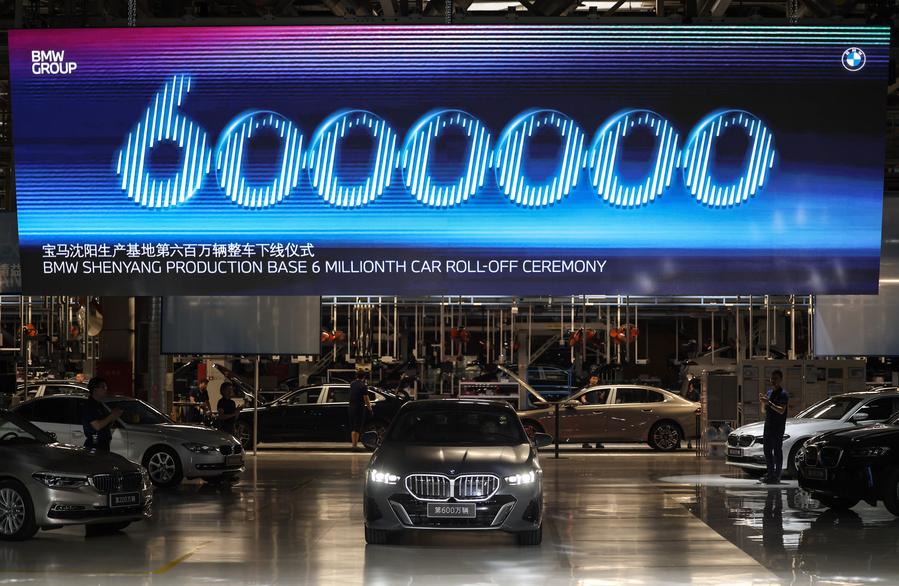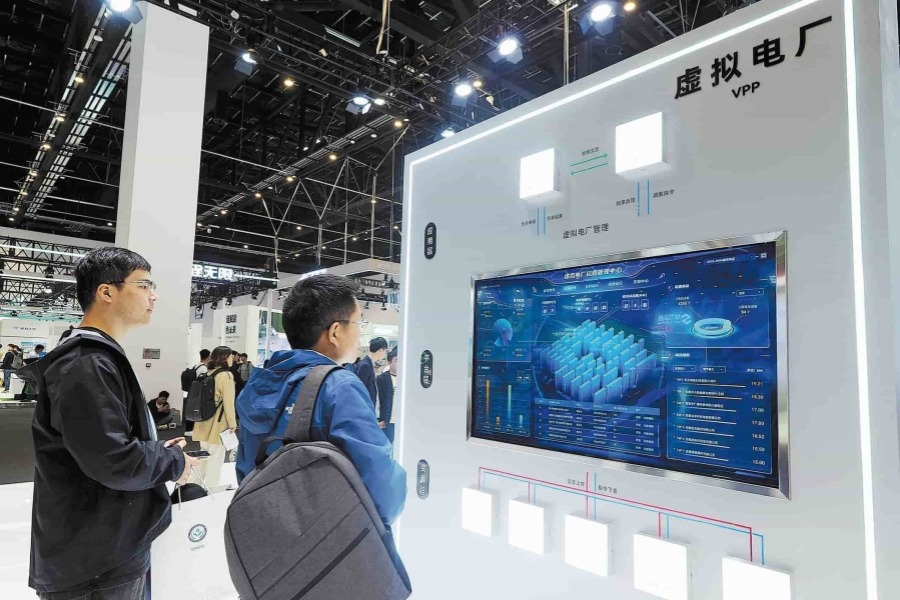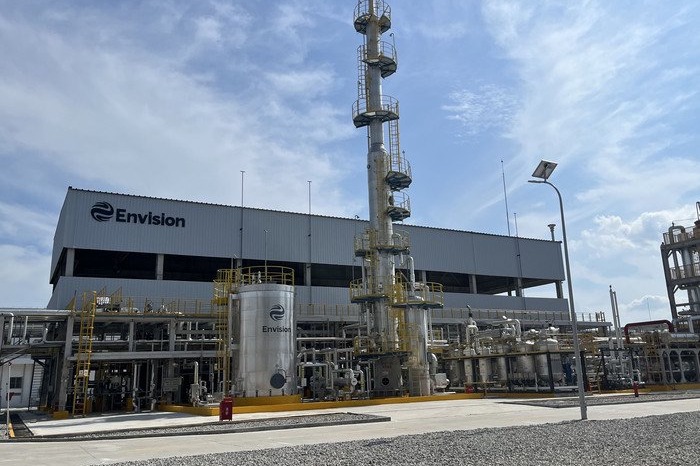China's AI, smart manufacturing fuel foreign investment momentum


NANJING -- For Franz Decker, a senior executive at BMW Group, China's rapid advances in artificial intelligence (AI) represent a crucial engine of the auto giant's global digital transformation.
In July, the German automaker inaugurated its first information technology (IT) center in China -- and its largest in Asia -- in Nanjing, Jiangsu province. The facility is designed to harness cutting-edge technologies, including AI, to provide digital solutions across BMW's global production, sales and after-sales networks.
"China not only leads the world in the application of digital technologies, but also demonstrates remarkable vitality in building a thriving ecosystem for digital innovation," Decker said.
"By joining forces with China's innovation ecosystem, we aim to propel BMW Group's digital transformation both in China and globally," he added.
BMW has been increasingly integrating AI into its operations in China. In 2024, the automaker's proprietary AI tool "JoyCode" achieved a 30-percent assisted code generation rate, boosting delivery efficiency by the same margin, an accomplishment the company said reflects the global value of Chinese innovation.
The German automaker is also deepening collaborations with China's leading tech firms. It is co-developing advanced driver-assistance systems tailored to Chinese road conditions with autonomous driving startup Momenta, building a customized AI engine with Alibaba based on the Tongyi large language model and integrating DeepSeek into BMW's AI-powered personal assistant.
"We are moving into a new generation of cars and a new generation of solutions," Decker said. "China obviously is at the forefront of a lot of innovations in IT and Nanjing is our gate to this innovation here in China."
Beyond the auto sector, foreign firms are also anchoring themselves more deeply in China's smart manufacturing landscape.
On July 30, software giant Dassault Systemes launched its new Nanjing-based subsidiary. With 20 years of experience in the Chinese market and about 60,000 local clients, the company is expanding its footprint to offer software-as-a-service (SaaS) platforms for digital manufacturing.
Initially targeting smart manufacturing and the steel industry, the new entity aims to gradually extend services to aerospace, biopharmaceuticals and other high-tech sectors, according to the French company.
"High-end equipment manufacturing and aerospace industries in Nanjing are growing rapidly," said Xu Feng, vice-mayor of Nanjing. "The demand for digital transformation of Chinese manufacturing enterprises and Dassault Systemes' technological strengths have formed a natural complementarity."
As one of China's manufacturing powerhouses, Jiangsu is at a crucial point in its digital transformation, attracting steady high-end foreign investment, especially in headquarters, R&D and advanced manufacturing projects.
Data show that in the first half of 2025, Jiangsu attracted $11.54 billion in actual foreign investment, maintaining its lead among Chinese provincial-level regions.
Samson Khaou, executive vice-president of Dassault Systemes, attributed the company's growth in China to a longstanding commitment to local integration. "The reason why we have grown to this level is because we are adhering to the 'In China, For China, With China' policy."
"And this helps us to really bring the best practice from around the world to enable the digital transformation of the Chinese industry and here in Jiangsu province," Khaou added.
A recent survey by the French Chamber of Commerce in China found that 60 percent of French companies have operated in the country for over a decade, highlighting strong long-term confidence. Furthermore, 25 percent of those firms plan to boost their investment in China by 2025, focusing especially on high-end manufacturing and industrial digitization.
Chinese Vice-Minister of Commerce Ling Ji recently said at a press briefing that China has achieved the $700 billion investment attraction target for the 14th Five-Year Plan period (2021-2025) ahead of schedule.
As of the end of June this year, China's actual use of foreign direct investment during the 14th Five-Year Plan period had reached a cumulative total of $708.73 billion. A total of 229,000 new foreign-funded enterprises were established during the period in the country, an increase of 25,000 from the 13th Five-Year Plan period.
Ling revealed that foreign investors have increased their allocations in China's high-tech sectors compared with 2020, with many multinational companies establishing regional headquarters and global R&D centers in China.
New policy measures are fueling this trend. A recent circular from the National Development and Reform Commission and other ministries outlined fresh incentives to encourage foreign firms to reinvest in China.
The policy measures include initiatives to streamline project approvals, optimize land use allocation, facilitate foreign exchange use and expand financing channels, all aimed at boosting foreign companies' willingness to continue investing in the Chinese market.
Strong local performance continues to drive foreign firms' growing presence in China. At Bosch and Siemens' smart washing machine factory in Jiangsu, supported by 5G and the Internet of Things (IoT), a new unit rolls off the production line every 24 seconds.
"We have always been deeply committed to the Chinese market," said Simon Song, president of BSH Home Appliances Greater China.
"Over the next six years, we plan to invest more than 3 billion yuan ($420 million) in R&D alone here," Song added.




































